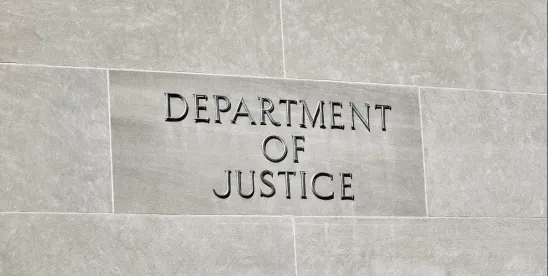On April 29, 2024, the Department of Justice (DOJ) announced a $1.3 million settlement (Settlement) with a South Carolina clinical laboratory marketer and his marketing company, and three physicians and their medical practices in North Carolina, to resolve alleged violations of the False Claim Act (FCA) arising from kickbacks in violation of the Anti-Kickback Statute (AKS).
The DOJ alleged that a marketer and his marketing company offered kickbacks to physicians on behalf of a South Carolina laboratory and that the physicians and their medical practices received kickbacks from the laboratory in exchange for laboratory referrals. These kickbacks resulted in the submission of false claims to Medicare and TRICARE in violation of the FCA. This Settlement follows previous settlements by physicians in South Carolina and Texas to resolve similar allegations with respect to the same clinical laboratory.
The marketer and his marketing company agreed to pay $400,000 to resolve allegations that disguised thousands of dollars in kickbacks to doctors by entering into purported office space rental agreements and phlebotomy payments when the real purpose was to induce them to order laboratory testing from the South Carolina laboratory. In addition, the laboratory paid the marketers on a commission basis even though they were independent contractors and, as such, fell out of the safe harbor for the AKS due to payment that is based on the volume and value of the referrals.
Three doctors and their medical practices agreed to pay a total of $973,400 to resolve allegations that they received a variety of kickbacks in exchange for laboratory referrals, including thousands of dollars in remuneration disguised as purported office space rental, phlebotomy payments, and also for purported payments for used laboratory equipment. One physician and his practice received credit under the DOJ’s guidelines for cooperation.
This Settlement highlights the government’s continued scrutiny of compensation arrangements between laboratories and physicians, particularly with respect to remuneration that may appear legitimate on its face but is actually made with the intent to induce referrals and compensation to independent marketers based on the volume or value of the laboratory tests they cause medical providers to refer. It is also a timely warning to laboratory marketers, physicians, and physician practices of the need to ensure compliance with federal fraud and abuse laws.
This post is co-authored by Seth Orkand, co-chair of Robinson+Cole’s Government Enforcement and White-Collar Defense Team.



 />i
/>i
